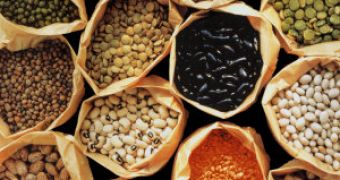Scientists from St. Michael's Hospital and the University of Toronto, coordinated by Dr. David Jenkins, studied the impact that a diet rich in nuts, lentils and beans might have on one's health, compared to a high cereal-fiber diet. The experts were particularly concerned with improving the physical condition of patients suffering from diabetes and various heart diseases, and finding out which one of the two different types of nutrition best suits their needs.
The subjects of the study were around 210 people suffering from the most common form of diabetes - type 2. The participants were asked either to choose a low-glycemic diet, containing beans, lentils, nuts, pasta, and different kinds of breads and cereals producing low levels of glucose in one's blood, or a so-called "brown diet," including whole grain or wheat cereals, bread, potatoes with skins and brown rice. All the subjects were told to eat fruits and vegetables daily.
After a period of six months, all the participants in the study, who had also been receiving proper medication to control the glucose level in their blood, were tested again. Even if the differences in weight weren't significant, it was discovered that the people in the former group had reasonable blood levels of sugar, and a good level of HDL, a lipoprotein that is also known as the "good-cholesterol."
It seems that we have a lot to learn from the past, as contemporary wide-spread diseases like diabetes, which can also cause lots of other health problems, such as heart diseases, stroke, blindness, and so on, can be tamed only with the "tools" of a proper diet. "A lot of the traditional foods like beans, pasta - these sorts of foods that were eaten perhaps by our grandparents - can usefully be brought back into the diet," says Dr. Jenkins.

 14 DAY TRIAL //
14 DAY TRIAL //